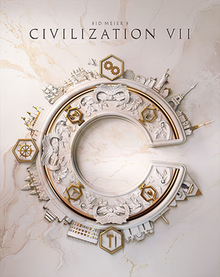

In the great battle of time management between your social life and gaming, Sid Meier's Civilization VII has entered the ring, equipped with extensive world domination mechanics and enough historical figures to make any history teacher weep with jealousy. Released in early February 2025, it both solidifies and challenges the franchise's legacy. Did it evolve into a majestic empire or is it just another tiny settlement with great hopes? Grab your favorite leader (hopefully not Genghis Khan who will invade your breakfast), and let's dive into this age-old saga.
In Civilization VII, you boot up your console and immediately consider how to improve your civilization's standing in the world. How do you do that? Well, there's a simple task of building cities, researching technologies, engaging in diplomacy, and, oh yes, outright war. You can choose a leader, each with their advantages and quirks-you could pick a philosopher like Socrates if you fancy deep discussions about whether or not he's just a woolly-headed dreamer. The gameplay allows you to develop from modest beginnings to a futuristic society. And by 'modest beginnings,' I mean barely scraping by with a couple of huts and collective guilt for all the industrial emissions. As is tradition, you can engage in various victory conditions, including military conquest, scientific advancements, or, if you're feeling particularly cultured, achieving world peace (please note this may lead to a fever dream of an idealistic utopia). Choices abound as you navigate three distinct ages-the antiquity, exploration, and modernity-remember to not get stuck in the antiquity, or you might miss out on smartphones and other exciting gadgets. The game even introduces crisis events that simulate societal breakdowns-so if you weren't stressed enough about managing civilization, now you can worry about things like recessions or the dreaded faction splitting just because someone didn't utilize their turn wisely.
Visually, Civilization VII is a feast for the eyes. The graphics are more resplendent than ever, meaning your civilization can now thrive among picturesque landscapes and magnificent historical cities that could qualify for 'best Instagrammable spots.' Each detail is rendered beautifully, making you believe you've been entrusted to govern actual historical figures, from Cleopatra sporting a sassy eye-roll to Einstein with that wild white hair that seems particularly rebellious. Animations during gameplay are smoother than ever, which means no awkward pauses when the world let's you know you've done something monumentally stupid-like designating your first city right next to a lava pit. Bright colors, fascinating landscapes, and adorable (if not sometimes slightly creepy) units make a rather compelling argument for sitting down and resigning to long hours of 'just one more turn.'
Civilization VII offers a refined blend of tradition and fresh experiences packaged in a tantalizing layer of modern complexity. Whether you're looking to enslave the world politically, culturally, or through sheer force, the game has it all, even if it means losing countless hours of your life to existential musings about nation-building in a non-existent universe. The reception has been a mix of accolades and critiques-most praising graphics and gameplay,while others took umbrage at oversimplified mechanics. Instead of dwelling on the negatives, just remember: every time you turn it on, you're presented with a blank slate, like doing a group project where everybody secretly hates each other but ends up working together for a mutual grade. In short, Civilization VII may not be without its flaws, but it's got enough charm and chaos to make it worth your while-until the next iteration, of course.






